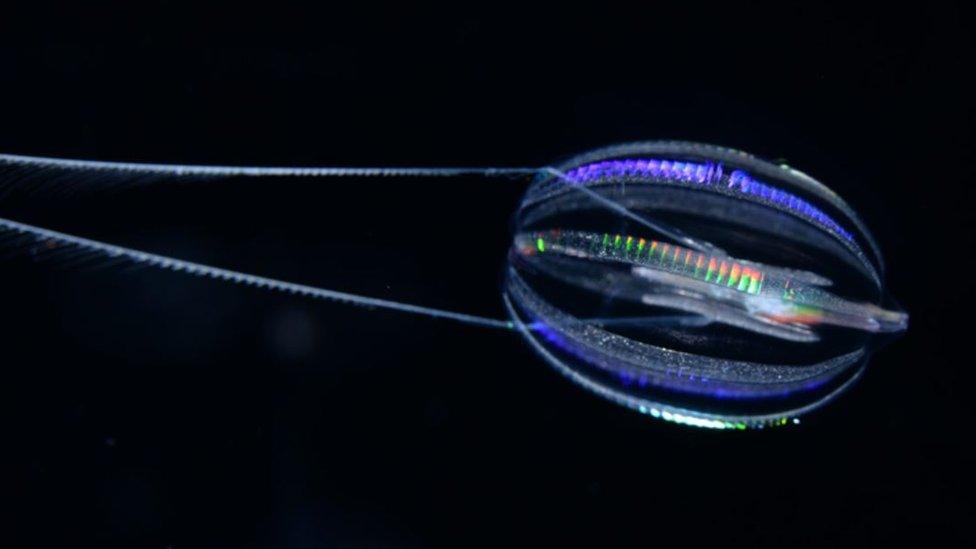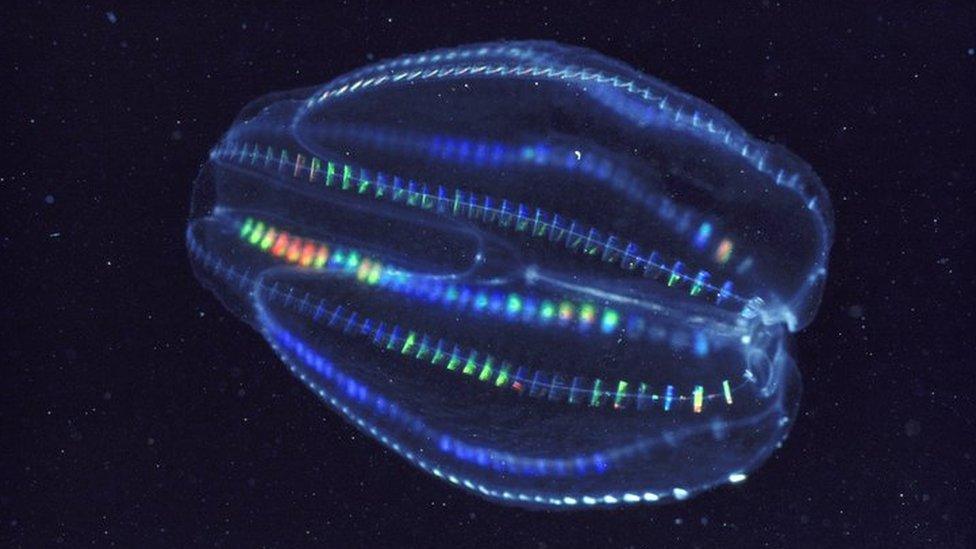Ctenophore: Scientists identify jellyfish-like animal as the oldest living creature on Earth
- Published
- comments

Scientists in America have discovered the oldest living creature on our planet.
Experts have confirmed that it is a jellyfish-like organism called a ctenophore - also known as a comb jelly.
They first emerged up to 700 million years ago - a long time before dinosaurs, which only appeared around 230 million years ago.
The study also found that ctenophores are the closest relatives of the first animals - and they can still be spotted in oceans and aquariums today.
What have scientists found?

Biologists have spent years trying to find out what the earliest animals were.
Scientists gradually narrowed the possibilities down to two groups: sponges and comb jellies.
Sponges spend their entire adult lives in one spot, filtering food from seawater - while comb jellies swim their way deep down through the world's oceans in search of food.
A new study involving researchers from the University of California, Berkeley, has discovered that comb jellies have been around longer than sponges, which date back about 600 million years.
Ctenophores have eight sets of cilia - tentacle-like structures - running down their side. They use these to move themselves through the oceans in search of food.
Daniel Rokhsar, from the University of California, explained that comb jellies are "the most recent common ancestor of all animals" and "probably lived 600 or 700 million years ago".
Professor Rokhsar added: "It's hard to know what they were like because they were soft-bodied animals and didn't leave a direct fossil record.
"But we can use comparisons across living animals to learn about our common ancestors."
Darrin Schultz, from the University of Vienna, who was also involved with the study, added that the discovery would "begin to develop a better understanding of how animals have evolved".
